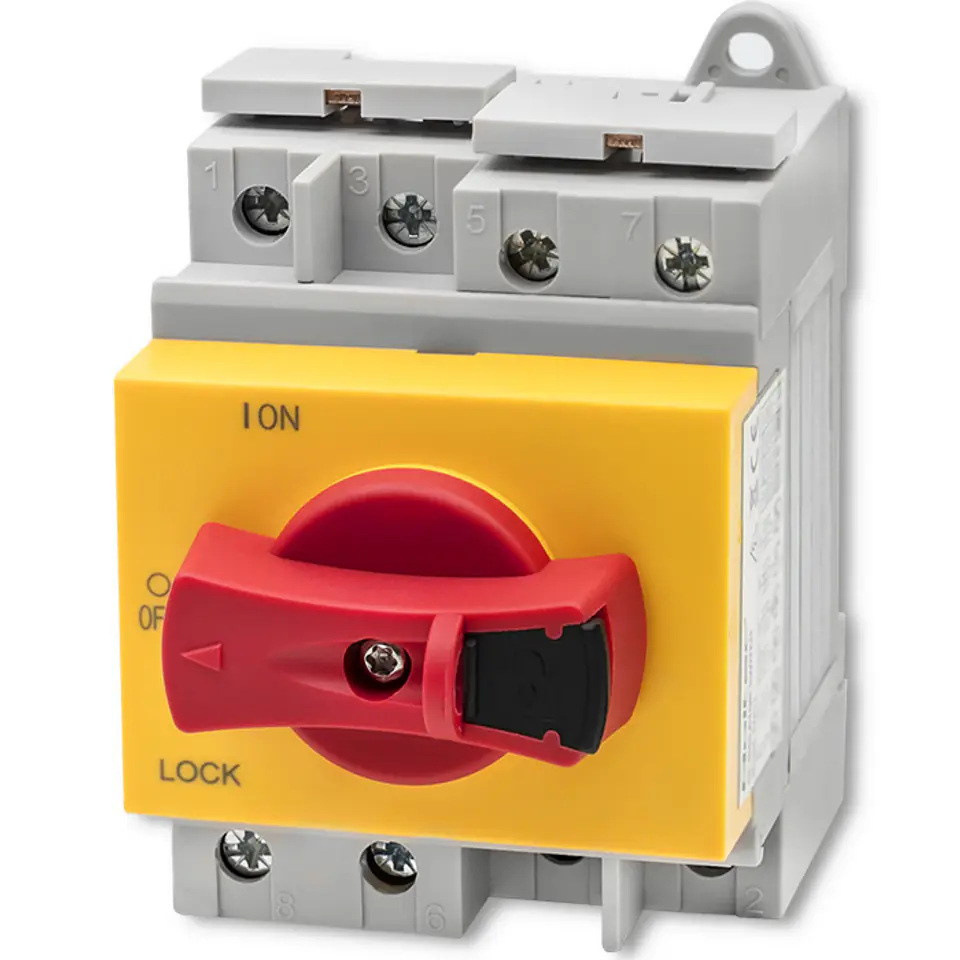Ideal for photovoltaic professionals and amateursThe DC circuit breaker from Qoltec, also known as an isolating disconnect switch, acts as a so-called main circuit breaker. It prevents short circuits, overloads and damage to the installation. It is used to safely disconnect the power supply and reconnect the DC circuits, i.e. to disconnect PV modules from the inverter, for example, or to stop the inverter in the event of a fault, or to isolate the circuit when carrying out work in switchgear.Switch lock functionThe product has an ON/OFF switch and a LOCK locking device, which effectively prevents the installation from being accidentally switched on. The switch can be placed in a switchboard on a TH-35 rail or surface-mounted with screws.Safe photovoltaic installationEvery photovoltaic installation works on direct current, so it is important to ensure that its operation is fault-free and safe. To guarantee reliable operation and adequate protection, the installation should be equipped with a photovoltaic DC isolator, a so-called DC circuit breaker. This is usually installed between the photovoltaic panels and the solar inverter to isolate the PV panels during any maintenance work, for example. This makes it safe to carry out any repairs, replacements of damaged plant components or system extensions.
Qoltec 52611 DC isolator with locking function | Main switch | 1200V | 32A | 8kV | 4P








































€33.85
Shipping from warehouse: A3
Estimated shipping: Mon, Apr 28 - Tue, Apr 29
14 days returnUnconditional return policy
- Availability:
- large quantity
- Brand:
- Qoltec
- Product code:
- 52611 / 5901878526119
Share this product:
Specification
| Depth: | 89 mm |
|---|---|
| Height: | 95 mm |
| Insulating material: | PPO |
| International protection (ip) code: | IP20 |
| Number of poles: | 4 |
| Rated current: | 32A |
| Rated voltage: | 1200V |
| Starting current: | 8KV |
| Substance: | PC + Silver alloy contact + copper fittings |
| Weight: | 264 g |
| Width: | 62 mm |
| Working temperature (max): | 85 °C |
| Working temperature (min): | -40℃ |
Despite our best efforts, we cannot guarantee that the published technical data and photos do not contain inaccuracies or errors, which, however, cannot be a basis for claims.







































